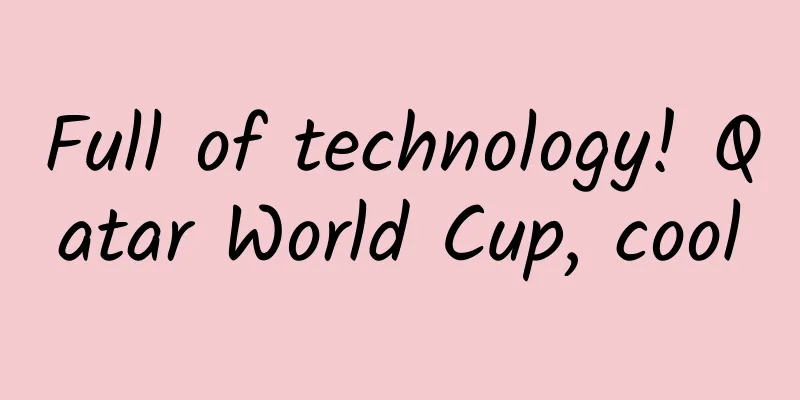Smart home is popular, but it is a bit broken when it comes to implementation

|
1. What exactly is a smart home? The concept of smart home sounds too grand at first, but it is a bit ruined when it comes to implementation. Manufacturers here just take out a product, put a smart home label on it, and want to sell it for a few hundred yuan more. In order to facilitate transactions, they exaggerate the functions; consumers there experience it and find that it is no different from traditional products, and are extremely disappointed. Looking at the industry as a whole, manufacturers are currently mainly entering the market with home appliances, adding a chip to enable them to be connected to the Internet and controlled by an app, and this is called a smart home. As for collecting and analyzing data, as well as more complex interactive functions, they are still in the conceptual stage. In fact, smart home should not be made so mysterious. I believe that any product that can make traditional home products more convenient, comfortable, safer and more reliable can be called a smart home. Connecting to the Internet and APP control are only a means, not an end. 2. Why has it become so popular in the past two years? Smart home is actually not a new thing. More than a decade ago, people engaged in real estate and decoration were very optimistic about this thing, but at that time they hoped to achieve it through a large and comprehensive system, which was costly and had a poor experience, so it could only become a plaything of the richest people and could not enter the lives of ordinary people. In the past two years, home appliance manufacturers have found that using the Internet as a tool can make the experience of individual products better and can also help to reshuffle the industry. The first movers will have the opportunity to gain more benefits. Internet companies are also eager to try, wanting to turn home appliances into their own home entrances, compete for more voice in the hardware market, and thus maintain their dominance in software and hardware. Of course, the popularization of WiFi and the advancement of products such as smart TVs have done a lot of homework for the education market. 3. What are the main forces in the market? The protagonists are of course traditional home appliance manufacturers, with Haier and Midea being the most active . They have not only developed many smart products, but also hope to build a smart home system and platform with themselves as the center. These manufacturers have irreplaceable advantages in product technology and channels, but they are also obviously inferior in software, Internet and other services related to user experience, and experience in building open platforms. My suggestion is to cooperate more with Internet companies and just make good products. It is not feasible to be greedy and seek perfection. The second force is the Internet giants. Baidu , Alibaba, JD.com, and Tencent each have their own ways of playing. The common point is that they all put smart homes on their own cloud platforms and play with cloud ideas. Because there are too many home appliance products and the fragmentation phenomenon is very serious, the giants are right to play to their strengths and avoid their weaknesses and not make products. But the cloud is really not attractive to home appliance manufacturers. Which one can eventually become a standard and system depends on its appeal among home appliance manufacturers. JD.com, as an important home appliance sales channel, is one of the giants I am more optimistic about. Some people say that JD.com has no technology, but didn’t they invest in Broadlink? Liu Zongru told me that they did a lot of the implementation work of JD.com’s smart home. The third force is start-up companies. Represented by Xiaomi , Broadlink, Dianmingshijian, and many router manufacturers, these companies have both Internet genes and product genes, and are trying to start with a certain product to seize the so-called home entrance. It is said that Xiaomi also makes air conditioners and soymilk machines, not to mention routers. Although they are not selling well, Tang Mu is still very confident about the future when chatting with me. Everyone says that Xiaomi has always wanted to be an e-commerce platform, and it is not impossible to become a vertical e-commerce platform for smart homes in the future. 4. Is there a center? Who is the center? There will definitely be a center. Routers and smart TVs have great opportunities, and cloud centers are also possible. Wang Hui, CEO of Reco Smart Socket, told me that the center must be an existing device that plays a role in the home, not a brand new thing. However, there is no unified standard in this industry now, and each router manufacturer has great ambitions, so it is difficult to say who will be the winner. 5. Why do people like to play APP control? An example that Xiaomi's Tang Mu often gives is, after you use the toilet, do you still need to take out your mobile phone to flush the toilet? Huang Dong, CEO of Magic Bean Router, also believes that the space of a mobile phone screen is limited after all, and throwing everything on it is too inhumane. JD.com held a press conference on the 26th of last month, using a super APP to control a large number of home appliances. It was cool, but useless. Wouldn't it be great to have a super remote control, throw it at home, and integrate home appliance control on it? Do you know how tiring it is to turn on the air conditioner, change the channel, or go to the toilet? Of course, we are not fools, so why do we still enjoy it? The answer is to educate the market. Let some people use it first, even if the function is useless, you will know it after using it, and it will be easier to handle it in the future. For JD.com, the biggest use of super APP is that it can attract more partners. For manufacturers who spend money to produce smart sockets and switches, these gadgets are not their main business. They already have more mature products abroad. Now they are just taking up space for these gadgets. There are still ways to make money, such as providing services for traditional manufacturers who are eager to develop smart homes. I don’t know if they are doing well, but as long as they can make money, it’s fine. 6. In which direction will smart home control go? APP control, voice control, automation. APP control is really useless. Voice control can save a lot of trouble. Maybe watches can also become home control centers. After all, compared with mobile phones, watches can be carried with you all the time and can hear whatever you shout at it. Compared with APP and voice control, the coolest thing is of course automation. Many home appliances communicate with each other in the "if...do..." scenarios you preset. For example, when you go to the toilet in the middle of the night, the sensor senses that you are up and automatically turns on the lights in the corridor. After you are done, the toilet automatically flushes and the lights automatically turn off. Or when the air environment at home is not ideal, the air conditioner and air purifier can also automatically start to adjust. It can be said that in the automation scenario, smart homes are truly connected to the Internet and have the ability to make judgments. Of course, there will be various human sensors, air detectors, smoke detectors and other sensor devices as input devices to provide a basis for home appliance decision-making. 7. What else is needed for the popularization of smart homes? The current problems are: first, the functions are useless and unattractive, and need to be improved slowly; second, the price is too high, and poor people cannot afford it, but the cost is indeed high, and it takes time. When the price of air conditioners rises because they are all equipped with chips, people may not think it is expensive; third, the consumer's concept problem. The market needs education, and those home appliance manufacturers who fish in troubled waters and hype up concepts often make things go in the opposite direction. Fourth, the standards are not unified. Everyone wants to take control, but in the end, it depends on strength. The manufacturers I interviewed were all relatively optimistic and said that the market would truly explode in the next two to three years. As a winner of Toutiao's Qingyun Plan and Baijiahao's Bai+ Plan, the 2019 Baidu Digital Author of the Year, the Baijiahao's Most Popular Author in the Technology Field, the 2019 Sogou Technology and Culture Author, and the 2021 Baijiahao Quarterly Influential Creator, he has won many awards, including the 2013 Sohu Best Industry Media Person, the 2015 China New Media Entrepreneurship Competition Beijing Third Place, the 2015 Guangmang Experience Award, the 2015 China New Media Entrepreneurship Competition Finals Third Place, and the 2018 Baidu Dynamic Annual Powerful Celebrity. |
<<: NetQin was repeatedly attacked by Muddy Waters because of the help of "insiders"
Recommend
Do you know? Behind the glamorous appearance, astronauts have experienced these embarrassing things
When talking about astronauts, people will think ...
Are there any carcinogens hidden in your home? I suggest you check it out right away
Home is our warm harbor. After we have worked har...
I suddenly have a headache. Is it a serious illness?
One minute with the doctor, the postures are cons...
Tencent's $350 million investment in Kuaishou is the beginning of the post-BAT era
On March 23, the popular short video and live str...
How effective is paid promotion of mobile apps? With all the chaos going on, who can you trust?
We spend money on promotion for the sake of resul...
This guy moved, and 20 million people watched! What happened?
16th, Hangzhou, Zhejiang A body about 3 meters lo...
up to date! Information flow platform traffic ranking! What is the ranking of the platform you promote?
Do you remember how much advertising cost in Sept...
About improving operational conversion rate (Part 1)
When users use a product, there are always two op...
Singing light bulb Sengled Pulse Flex music smart light review
With the increasing popularity of the Internet of...
How to promote an app without any budget
Application promotion is an old topic. Here are s...
A refreshing welfare fighting game on PS4 "Guilty Gear Unknown Dimension - Omen -" shy experience
After much anticipation, the second wave of Chine...
Don't argue, don't argue, all beers are equal
In a few days, the May Day holiday will come. Man...
The simplest video chat tool Xiaoyu accompany robot experience at home
With the help of technology, being able to see th...
Scientific and technological talents talk about strengthening the country | Rong Xuzheng, deputy chief designer of "Lijian No. 1": A thorough control of the avionics system of "Lijian No. 1"
Rong Xuzheng still remembers that the day he lear...









